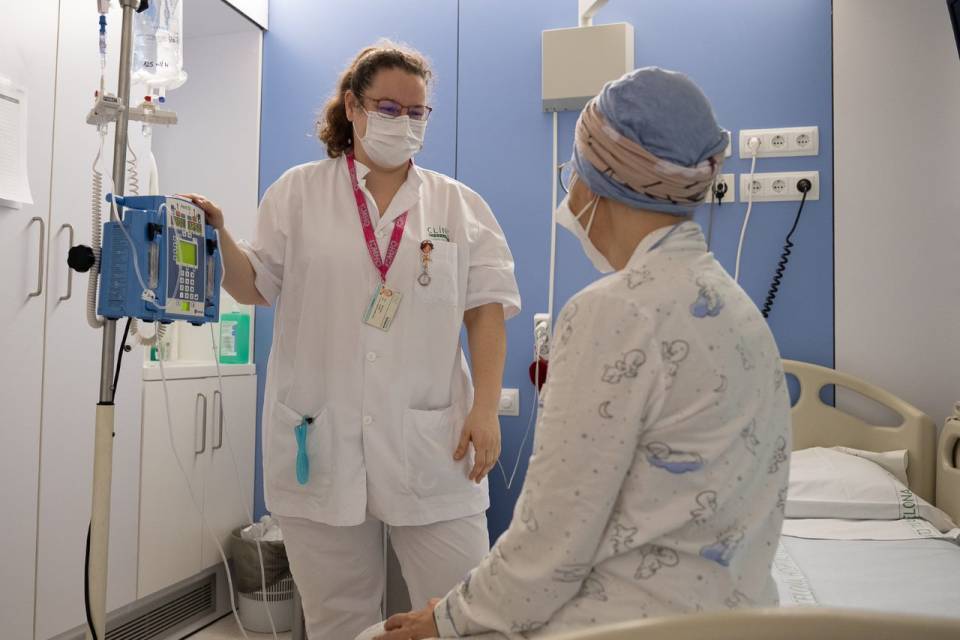Metastasis is when a cancer is no longer in one location, but has spread to different organs or to different locations of the same organ as the tumour growth advances. Sometimes, metastases are identified before the original tumour is diagnosed. After analysing the type of cells, the organ of origin can be identified.
The advent of new treatments has made it possible for people with cancer to be cured or, if not, to live longer with the disease. “In general, as the disease advances, healing becomes more difficult. It depends on each case and the type of cancer,” explains Dr Aleix Prat, head of the group Translational genomics and targeted therapies in solid tumours, at IDIBAPS.
“Today, saying that someone has breast cancer is not really saying anything at all; you have to put names and surnames to all cancers,”
Dr Prat
In testicular cancer, for example, the cure rates for patients with metastases are very high, reaching 90% of cases. Dr Aleix Prat states, "Metastasis does not mean that a cure is not possible; but it is true that a cure is more difficult in most advanced cancers, and sometimes impossible."
Cancer treatment according to its stage
The treatment for a tumour can be very varied, e.g. surgery or radiotherapy; or an endless number of drugs can be used, which vary greatly from one cancer to another. Many of these treatments are well-known: chemotherapy, biological drugs, hormonal therapy and more recently, immunotherapy. This combination of treatments is what makes it possible to cure half of the cancers diagnosed today.
When the disease is no longer localised – that is, it has metastasised – treatment with different drugs is usually administered, often combined with radiotherapy. The aim is to control these metastases, reduce their size and stop them from spreading further.
"We probably need to discover more specific alterations, to be able to target the drugs against each type of cancer,”
Dr Mollà
"There have been some spectacular advances in the field of oncology In the last 20 years," highlights Dr Aleix Prat, "especially in the level of biological knowledge we have of the different types of cancer." In other words, the genetic alterations behind each cancer have begun to be discovered, and this has led them to their classification.
“Today, saying that someone has breast cancer is not really saying anything at all; you have to put names and surnames to all cancers,” he says.
In addition, there are now also targeted therapies. These are drugs that work only when a specific tumour has a specific biological alteration (a mutation). That is why research in precision oncology (studying the biology of each type of cancer) is so important. Because of this, everything is being subdivided and has become much more complex, where the treatment depends on the biology of the cancer.
“Before, we knew that if a patient had a certain gene, his cancer might be much more aggressive. Later, a treatment directed against this alteration was found and, from there, the cancer became much less aggressive. Therefore, we probably need to discover more specific alterations, to be able to target the drugs against each type of cancer,” explains the radiooncologist, Meritxell Mollà.






